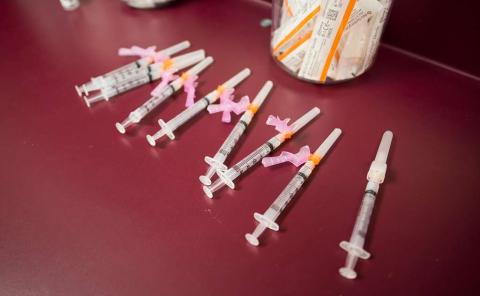
Breaking News
 Tell General Mills To Reject GMO Wheat!
Tell General Mills To Reject GMO Wheat!
 Climate Scientists declare the climate "emergency" is over
Climate Scientists declare the climate "emergency" is over
 Trump's Cabinet is Officially Complete - Meet the Team Ready to Make America Great Again
Trump's Cabinet is Officially Complete - Meet the Team Ready to Make America Great Again
 Former Polish Minister: At Least Half of US Aid Was Laundered by Ukrainians...
Former Polish Minister: At Least Half of US Aid Was Laundered by Ukrainians...
Top Tech News
 Forget Houston. This Space Balloon Will Launch You to the Edge of the Cosmos From a Floating...
Forget Houston. This Space Balloon Will Launch You to the Edge of the Cosmos From a Floating...
 SpaceX and NASA show off how Starship will help astronauts land on the moon (images)
SpaceX and NASA show off how Starship will help astronauts land on the moon (images)
 How aged cells in one organ can cause a cascade of organ failure
How aged cells in one organ can cause a cascade of organ failure
 World's most advanced hypergravity facility is now open for business
World's most advanced hypergravity facility is now open for business
 New Low-Carbon Concrete Outperforms Today's Highway Material While Cutting Costs in Minnesota
New Low-Carbon Concrete Outperforms Today's Highway Material While Cutting Costs in Minnesota
 Spinning fusion fuel for efficiency and Burn Tritium Ten Times More Efficiently
Spinning fusion fuel for efficiency and Burn Tritium Ten Times More Efficiently
 Rocket plane makes first civil supersonic flight since Concorde
Rocket plane makes first civil supersonic flight since Concorde
 Muscle-powered mechanism desalinates up to 8 liters of seawater per hour
Muscle-powered mechanism desalinates up to 8 liters of seawater per hour
 Student-built rocket breaks space altitude record as it hits hypersonic speeds
Student-built rocket breaks space altitude record as it hits hypersonic speeds
 Researchers discover revolutionary material that could shatter limits of traditional solar panels
Researchers discover revolutionary material that could shatter limits of traditional solar panels
Kindergarten Vaccine Exemptions Rise as More Parents Make Informed Decisions

Dr. Joseph Mercola
Since the rapid development of mRNA shots during the pandemic, many parents have been more proactive in making decisions about their children's vaccinations. Recent data from the U.S. Centers for Disease Control and Prevention (CDC)1 reflect this shift, revealing that more parents of kindergarteners are becoming selective about which vaccines their child receives, or are choosing to delay certain vaccinations.
This change is driven by an increase in the number of recommended vaccines for children, coupled with rising concerns about their adverse effects. While mainstream media portrays this development as concerning, I believe it reflects a positive shift toward greater awareness and a desire among parents to make informed decisions about their children's health care.
Fewer Parents Are Blindly Accepting the Scheduled Vaccines
According to the CDC,2 for the 2023 to 2024 school year, vaccination coverage among kindergartners decreased for all reported vaccines, with the percentage for the measles, mumps and rubella vaccine (MMR) at 92.7% and the diphtheria, tetanus and acellular pertussis vaccine (DTaP) at 92.3%.



